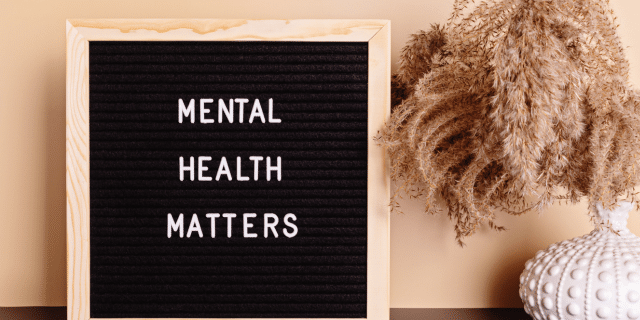You run toward danger, answer the call in the toughest moments, and shoulder the weight of other people’s emergencies. But who looks out for you? For first responders, the toll of constant stress, trauma, and long shifts can quietly accumulate—until it erupts as burnout, anxiety, or worse. That’s why taking a mental health day isn’t a luxury—it’s a necessity.
In this article, we’ll explore why stepping back is just as vital as stepping in, what a true mental health day looks like, and how to spot the warning signs that it’s time to take one. Don’t miss the quick self-check quiz to gauge your current stress level—it could be the first step in reclaiming your well-being.
Why Take a Mental Health Day?
Mental health days give your mind and body time to rest and recover from prolonged stress experienced by first responders:
- Emotional overload from repeated exposure to trauma
- Physical exhaustion from long shifts and irregular hours
- Compassion fatigue from constantly caring for others
- Feeling constantly on edge, even outside of work
Ignoring these signs can lead to chronic burnout, strained relationships, stress that affects daily living, and serious mental health conditions like depression or PTSD. A mental health day gives you the space to breathe, reset, and care for an important member of the team—you.
What Should You Do on a Mental Health Day?
A mental health day should be intentional and restorative. While it might be tempting to sleep in, stay in your pajamas, binge your favorite show, or scroll endlessly through social media, that’s not likely to leave you feeling truly refreshed. Instead, try making a simple plan to help you get the most out of your time away from work. Start by thinking about what brings you joy. Jot down a few possibilities—or if that feels overwhelming, just choose one thing. Here are some ideas to get you started.
Disconnect to Reconnect: Put your phone on Do Not Disturb. Avoid the news, emails, and social media. Give your mind a chance to unwind. Be fully present in the moment. Even a short break from screens can lower anxiety and help you feel more grounded.
Get Outside: Nature has powerful healing properties. A walk in the park, time at the beach, or even sitting in the sun can reduce stress hormones and boost mood. If the weather is warm enough, take off your shoes and walk on the soft grass. Let the sights, sounds, and scents of nature engage your senses.
Move Your Body: Stretching, yoga, or a bike ride can ease tension and improve your mental clarity. Movement can also release endorphins and help shift your mindset.
Be Creative: Engage your creative side. Draw or paint, write, experiment with a new recipe. Focus on the process of creation rather than the outcome. In other words, don’t judge your work. Enjoy the playfulness of creativity.
Do What Fills Your Cup: Read a book. Listen to music. Cook a favorite meal. Watch a show that makes you laugh. Reconnect with hobbies that bring you joy. Give yourself permission to slow down and indulge in what makes you feel most like yourself.
Practice Mindfulness: Quiet your mind. Try deep breathing, journaling or simply sitting in stillness to tune into your inner voice. Reflect on where you have been and where you are going. Evaluate goals and affirm your direction—or write down ideas of future explorations.
Burnout Self-Check Quiz for First Responders
How are you really doing? Take this quick quiz to find out. For each statement, choose the option that best reflects how you’ve felt over the past two weeks.
- I feel emotionally drained at the end of my shift.
A. Rarely
B. Sometimes
C. Often
D. Almost always
- I’ve been feeling more irritable, anxious, or disconnected than usual.
A. Not at all
B. Occasionally
C. More days than not
D. Nearly every day
- I struggle to get quality sleep or feel rested, even on days off.
A. Never
B. A few times
C. Most of the time
D. Every night
- I’ve lost interest in activities I used to enjoy (hobbies, time with family, etc.).
A. Not at all
B. A little
C. A lot
D. Completely
- I often feel like I must push through the day with little motivation or energy.
A. Rarely
B. Occasionally
C. Frequently
D. Constantly
Results
Mostly A’s – You’re in a good place. You may feel tired now and then, but you’re managing stress well. Keep practicing regular self-care to stay on track.
Mostly B’s – Take note. You’re starting to feel the weight. A mental health day could help you reset before stress takes a bigger toll.
Mostly C’s – Time to pause. Burnout may be setting in. Prioritize a mental health day, seek support, and consider checking in with a professional.
Mostly D’s – You need support now. Your tank is running on empty. Take a break immediately and talk to a trusted mental health provider. You don’t have to carry this alone.
You spend every day helping others. It’s okay—essential, even—to take a day to help yourself. Mental health days aren’t a sign that you’re falling short. They’re proof that you value your health, your career, and your ability to continue serving others with strength and compassion. Make space for rest. You’ve earned it.
This article is furnished by California Casualty, providing auto and home insurance to educators, law enforcement officers, firefighters, and nurses. Get a quote at 1.866.704.8614 or www.calcas.com.
- Surprising Careers for EMTs - February 27, 2026
- How to Properly Pack Your Fridge - February 24, 2026
- Staying in Control with Driver Assist - February 13, 2026

